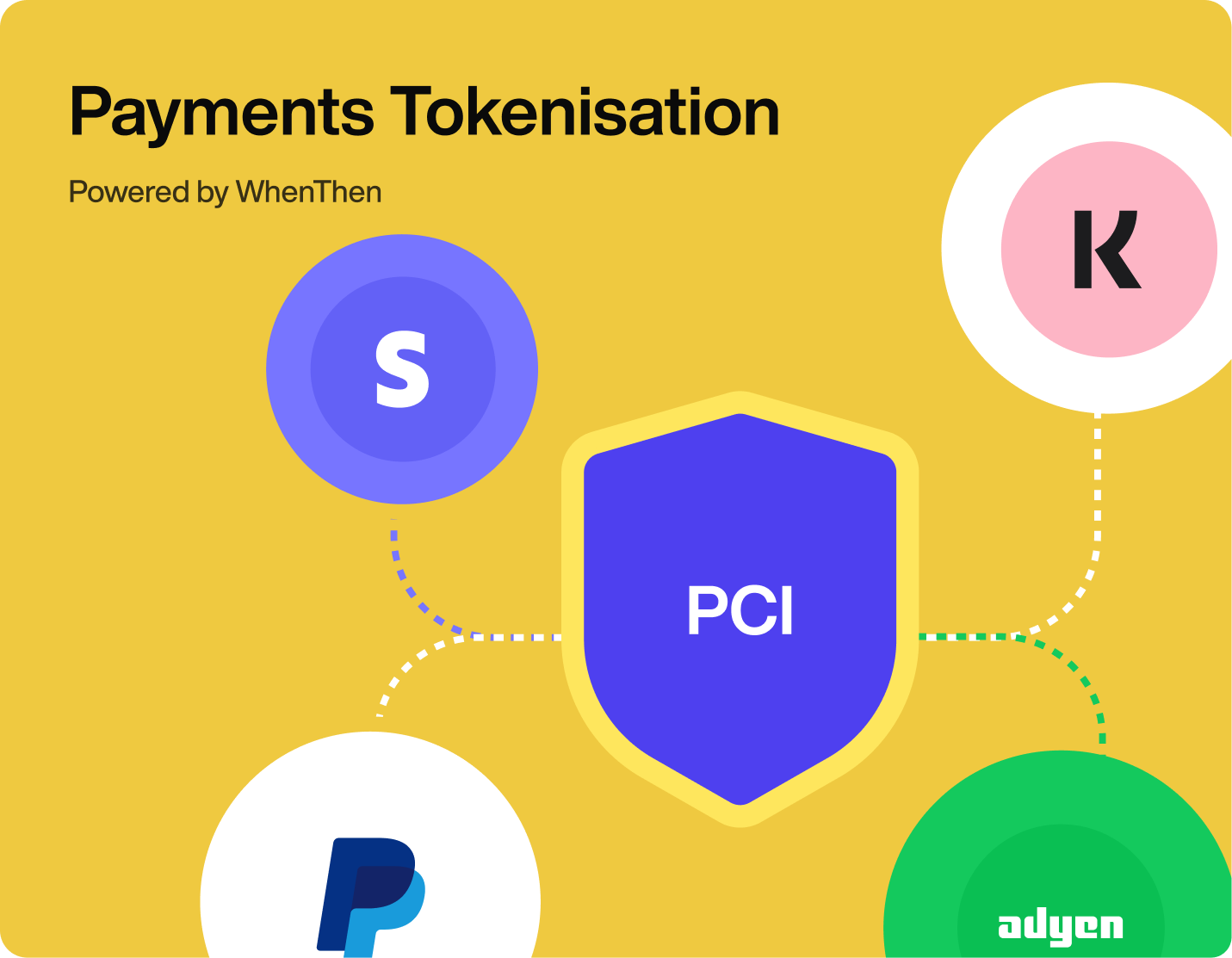
Payment Tokenization Explained

28 Mar, 2022·Remay ·Payments 101
Payment tokenization is the process of replacing a customer's sensitive payment information, such as their credit or debit card number, with a unique identifier or token. This token can then be used to process payments without exposing the customer's sensitive data.
Tokenization can be used for both online and in-person payments and is often used in conjunction with point-of-sale (POS) systems. Tokenization can also be used to secure other types of sensitive data, such as medical records or login credentials.
In this guide, we will cover everything you need to know about payment tokenization, including how it works, the benefits of using it, and some common use cases.
What is Payment Tokenization
When you use a payment token instead of your credit card number, the payment processor stores the token instead of your credit card details. This means that if there is ever a breach at the payment processor, your credit card number won't be stolen.
Tokenization also helps reduce the risk of fraud because thieves can't use stolen tokens to make fraudulent purchases. Payment processors use different types of tokens depending on the level of security needed. For example, they might use an encrypted token or a one-time-use token.
This is how it works:
- A customer's payment card information is collected by a merchant or service provider.
- The customer's payment card information is replaced with a unique payment token.
- The payment token is used to authorize payments without exposing the underlying payment card information.
If a data breach occurs, the payment tokens can be invalidated, preventing the thieves from using them to make fraudulent charges.
Tokenization can be used with any type of payment, including credit and debit cards, e-commerce transactions, and in-app purchases. Tokenization can be used for both online and in-person payments and is often used in conjunction with point-of-sale (POS) systems. Tokenization can also be used to secure other types of sensitive data, such as medical records or login credentials.
How Does Payment Tokenization Work?
Payment tokens are typically generated by a payment processor or gateway and are assigned to a customer's account. When a customer wants to make a purchase, they provide their payment token instead of their actual credit or debit card number. The payment processor then uses the token to process the payment without exposing the customer's sensitive data.
Tokens can be used for one-time payments or can be stored for future use in a secured token vault owned by the Payment Processor. For example, many online retailers allow customers to store their payment information so that they can make future purchases faster. Specifically, some of the most common use cases for payment tokenization include:
- E-commerce payments
- In-app payments
- MOTO (mail order/telephone order) payments
- Recurring billing
E-Commerce Payments
When customers make purchases online, they typically enter their credit or debit card information into a web form. This form is then submitted to the payment processor for authorization. If the payment is approved, the funds are transferred from the customer's account to the merchant's account. While this process is relatively simple, it does have some risks. First, the customer's credit or debit card number is being transmitted over the internet, which makes it vulnerable to interception. Second, the customer's credit or debit card information is being stored by the merchant, which increases the risk of a data breach.
Tokenization can help address the second issue. By replacing the customer's credit or debit card number with a payment token, the customer's sensitive data is never transmitted over the internet or stored by the merchant. This reduces the risk of fraud and data breaches. However, taking card information over the phone still carries some risks of getting intercepted. In this case, tokenization only applies once the details have been recorded.
In-App Payments
Tokenization can also be used for in-app payments. When customers make in-app purchases, they typically need to enter their credit or debit card information into the app. This information is then sent to the payment processor for authorization. If the payment is approved, the funds are transferred from the customer's account to the merchant's account.
This process can be risky because credit or debit card numbers are being transmitted and stored in an unsecured environment (the app). Tokenization can help address both of these issues by replacing the customer's credit or debit card number with a payment token. This way, the customer's sensitive data is never transmitted or stored in an unsecured environment.
MOTO Payments
Tokenization can also be used for MOTO (mail order/telephone order) payments. When customers make MOTO payments, they typically provide their credit or debit card information to the merchant over the phone or through the mail.
The merchant then submits this information to the payment processor for authorization. If the payment is approved, the funds are transferred from the customer's account to the merchant's account.
Although the customer's credit or debit card information is not being transmitted over the internet, it is still being stored by the merchant. This increases the risk of a data breach. Tokenization can help address this issue by replacing the customer's credit or debit card number with a payment token. This way, the customer's sensitive data is never stored by the merchant.
Recurring Billing
Tokenization can also be used for recurring billing. When customers sign up for recurring billing, they typically provide their credit or debit card information to the merchant. The merchant then stores this information and uses it to process future payments.
Using payment tokenization instead of storing the customer's credit or debit card information can help reduce the risk of a data breach. When the customer's credit or debit card number is replaced with a payment token, it is never stored by the merchant. This reduces the chances of the customer's sensitive data being compromised in a data breach.
Why is Payment Tokenization Important?
Payment tokenization offers a number of benefits for businesses, customers, and payment processors. Specifically, tokenization can help to:
1. Reduce chargeback. By replacing sensitive payment data with a token, businesses can reduce the risk of fraud and chargebacks.
2. Improve security. Tokenization can help to improve the security of payments by keeping sensitive data out of the hands of criminals.
3. Simplify compliance. Tokenization can help reduce the scope of data regulations such as PCI DSS. Increase customer satisfaction: By replacing sensitive payment data with a token, businesses can reduce the risk of fraud and chargebacks. Tokenization can also help to improve the security of payments by keeping sensitive data out of the hands of criminals.
In addition, tokenization can help businesses to simplify compliance with data security regulations, such as PCI DSS. This can ultimately lead to increased customer satisfaction.
What are the challenges of using traditional token vaults dependent on one PSP
The retail industry is booming and as new online stores pop up, the market gets saturated making every sale count for merchants. This led them to look for ways to optimize their checkout conversion - a mission that relies only on customer acquisition effort, until recently when they’ve learned that a large percentage of lost sales come from failed payments due to fraud, payment processor outages, and customers abandoning checkout, they started looking for ways to optimize their payment flows.
But what are the solutions?
- Save failed payments by re-routing and retry through an active payment processor
- Reduce fraud false positives by having full control over how your fraud check will run in the payment flows and bring more accuracy
- WhenThen’s token vault
In order to make these solutions possible, merchants need to use a Payment Orchestration Platform to manage multiple payment processors in one place, allow smart routing capabilities, test out different fraud providers, and more.
The challenge for merchants who rely on one payment processor’s token vault is that the transaction data stored in one payment processor can’t be used for another, which makes routing to other payment processors impossible.
😎 The good news is, Payment Orchestration Platforms provide an external token vault to allow the reuse of transaction data for other processors.
The other good news is that you can easily get started with Payment Orchestration without the headache through WhenThen’s powerful payments platform and take advantage of our external token vault which not only allows token reuse but also supports instant token exchange between vaults of different PSPs.
Find out what payment optimization your business might need. Speak to our PayGeeks who are experts in the field and unlock a direct positive impact on your bottom line like reducing payment processing and overhead costs, fraud, and building the best payment routes that lead to a successful conversion.
Final Thoughts on Payment Tokenization Tokenization is a valuable tool for businesses of all sizes when it comes to securely process payments. By replacing sensitive payment data with a token, businesses can reduce the risk of fraud and chargebacks, improve security, and simplify compliance. In addition, tokenization can also lead to increased customer satisfaction.
Explore more content
WhenThen
This blog is brought you to by our wonderful team. If you enjoy the content make sure that follow us.
Follow on twitter


